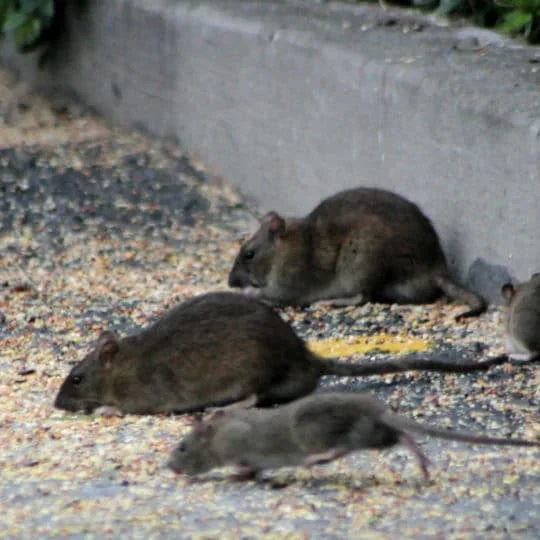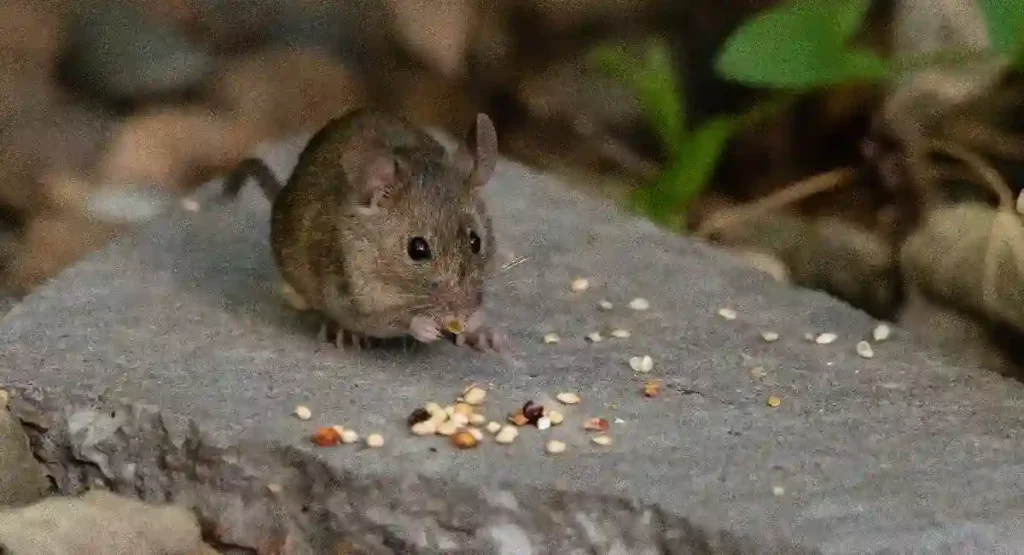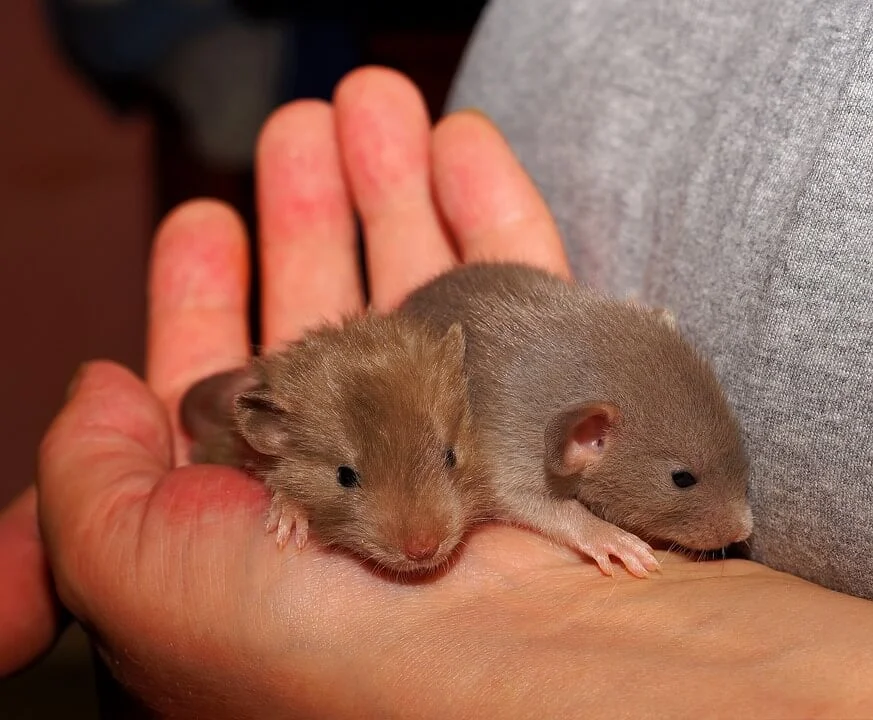
Mice are a common household pest, and many people wonder when they are most active. Understanding the activity patterns of mice can be helpful in controlling and preventing infestations. Mice are creatures of the night, indicating their peak activity during nocturnal hours. They possess remarkable night eyesight and rely on their acute senses of smell and hearing to maneuver in darkness
While mice are mostly active during the night, they may also be sneaking around during the day if they feel secure. This is especially true if they have access to a reliable source of food and water. Mice are versatile eaters and will consume nearly anything, ranging from grains, seeds, and nuts to fruits and vegetables. They are also attracted to food scraps and crumbs left behind by humans. Hence, it's crucial to store food in airtight containers and promptly tidy up any spills or crumbs.
Mice rank among the prevalent pests found in households, posing a significant nuisance for homeowners. They are known for their ability to chew through almost anything, including walls, electrical wiring, and even furniture. Mice are recognized carriers of diseases, presenting a considerable health risk.

Several signs can indicate when do mouses come out. These include droppings, gnaw marks, and the presence of nests or burrows. Mice also make a lot of noise when they are active, so homeowners may hear scratching or scurrying sounds coming from inside the walls or ceilings.
The most effective approach to deter a mouse infestation is to maintain cleanliness and eliminate clutter within the home. Homeowners should also seal up any cracks or holes in the walls or foundation of the home, given that mice can squeeze through the smallest openings, this emphasizes the importance of sealing any potential entry points.
Additionally, food should be stored in airtight containers, and garbage should be taken out regularly.
To sum up, mice represent a prevalent household pest capable of inflicting damage and health risks. Homeowners must proactively prevent mouse infestations by maintaining cleanliness, decluttering, sealing wall and foundation openings, and storing food securely in airtight containers.
One reason why it is important to understand when mice are most active is that it can help in the placement of traps and baits. By placing traps and baits in areas where mice are most likely to be active, the chances of capturing or killing them are increased. This can help to reduce the population of mice in an area, which can be beneficial for both residential and commercial properties.
Another reason why understanding mouse activity patterns is crucial is that it can help to identify areas where mice are most likely to be nesting or hiding. By knowing when mice are most active, it is easier to identify areas where they are likely to be hiding during the day. This can help in the removal of nests and the sealing of entry points, which can prevent future infestations.
In addition, understanding when mice are most active can also help to determine the best time to conduct inspections and treatments. By conducting inspections and treatments during the periods when mice are most active, it is easier to identify and eliminate infestations.
Overall, understanding the activity patterns of mice is crucial for effective critter control. By knowing when mice are most active, it is easier to place traps and baits, identify nesting areas, and conduct inspections and treatments. This can help to reduce the population of mice in an area and prevent future infestations.
Mice are small, nocturnal rodents that can be found in a variety of habitats, from fields and forests to urban areas. Understanding their daily rhythms is crucial for those who wish to control or study these animals.
Nocturnal creatures are active at night and typically rest during the day.. Mice are considered nocturnal because they are most active during the night.
Mice have a high reproductive rate and are known for their ability to adapt to different environments. These social beings dwell in groups and communicate using diverse vocalizations and scent markings. They are adept climbers, swimmers, and jumpers.
In their natural habitats, mice build nests in burrows or other secluded areas. They are omnivorous, consuming a wide array of foods such as seeds, fruits, insects, and small animals.
Compared to diurnal animals, mice have a higher metabolic rate and require more food to sustain their activity levels. They also have a higher risk of predation during the day, which is why they have evolved to be most active at night.
In comparison to crepuscular animals, mice have a more consistent pattern of activity throughout the night, while crepuscular animals may have periods of activity and rest during the twilight hours.
Overall, understanding the daily rhythms of mice is important for those who wish to control or study these animals. By knowing when they are most active, it is possible to develop more effective control strategies or conduct more accurate research.

Mice are known to be active throughout the day and night, but there are certain times when they are more active than others. Next, we will discover the different factors that influence the activity levels of mice and when they prefer to roam.
Mice are crepuscular animals, which means they are most active during the dawn and dusk periods. During these periods, they are inclined to venture out from their hiding spots in search of food. This is because the light levels are low, which provides them with a sense of safety while they move around.
Environmental factors such as seasonal changes, temperature, and lighting can also influence the activity levels of mice. In colder months, mice typically reduce activity levels to conserve energy, enabling them to endure harsh weather conditions. Similarly, during the hotter months, they may be less active during the day and more active at night to avoid the heat.
Lighting also plays a crucial role in determining the activity levels of mice. They are more active in low light conditions, which is why they prefer to roam during dawn and dusk periods. When the light levels are high, they tend to retreat to their hiding places.
Mice are always in pursuit of food, a key driver behind their heightened activity. They tirelessly move about seeking sustenance, with activity levels spiking during food shortages. This is why it is essential to keep food sources away from mice to prevent them from infesting your home.
In conclusion, mice are most active during the dawn and dusk periods, and their activity levels are influenced by environmental factors such as seasonal changes, temperature, and lighting. They remain vigilant for food at all times, with activity levels escalating during periods of food scarcity. By understanding these factors, you can take steps to prevent mice infestations in your home.

Mice are known to be active creatures, and their activity patterns can be influenced by various factors, including human activity. In this section, we will explore how human activity affects the behavior of mice and their active periods.
Mice are nocturnal creatures and are known to be most active during the night. However, their activity patterns can be altered due to the household routines of humans. For instance, if humans keep the lights on during the night, it can affect the activity patterns of mice. They may become less active or shift their activity to a different hour or moment of that day.
Similarly, if humans keep their homes clean and free of clutter, it can reduce the hiding places for mice, making them more active during the day.
The presence of humans can also affect the activity patterns of mice. If humans are present in a room, mice may become less active or avoid the area altogether. Additionally, loud noises can startle mice and cause them to become less active.
However, if humans are not present, mice may become more active and explore their surroundings. In residential and working places, mice have adapted to the noise levels and may be more active during the day when there is less noise.
Mice have adapted to living in urban environments and have altered their activity schedules accordingly. Mice activity during the day could be a response to reduced human activity and noise levels. Additionally, they may shift their activity patterns to avoid peak human activity times.
To conclude, human activity can profoundly influence the behavior and activity rhythms of mice. By understanding these factors, humans can take steps to control mice infestations and reduce their impact on human environments.
When it comes to managing active mice populations, there are several strategies that can be employed. These include laying traps based on active hours, utilizing professional pest control services, and implementing preventative measures tailored to times of high mouse activity.

One effective way to control active mice populations is by laying traps during the animals' most active hours. Mice are typically nocturnal creatures and are most active during the night. Therefore, it is best to set traps in the evening and check them in the morning. This will increase the chances of catching the mice and reducing their populations.
Professional pest control services can be a valuable resource for those dealing with active mice populations. These services have access to specialized equipment and knowledge of effective control methods. They can also offer continual monitoring and management to guarantee complete resolution of the issue.
In addition to trapping and professional pest control services, preventative measures can also be taken to reduce the likelihood of mice infestations. These measures can be tailored to times of high mouse activity, such as the fall and winter months when mice are more likely to seek shelter inside attics or walls.
Some preventative measures include sealing up entry points, keeping food stored in airtight containers, and regularly cleaning up crumbs and spills. By implementing these measures, individuals can decrease the chances of attracting mice and thwart potential infestations.
Overall, by utilizing a combination of these strategies, individuals can effectively monitor and control active mice populations. Whether through laying traps based on active hours, utilizing professional pest control services, or implementing preventative measures, there are a lot of possibilities available for everybody that needs to deal with mice infestations.
Mice are most active during the night, which is when they are likely to invade your home in search of food and shelter. To keep these pesky rodents at bay, it is important to take measures to safeguard your house during peak mouse activity periods.
Four recomendation to help you protect your home during peak mouse activity periods:
To prevent mice from entering your home through small cracks and holes, it's crucial to seal all potential entry points. Here are some effective methods:
Reducing attractants is also important in keeping mice away:
Natural predators such as cats and owls can help keep mice away. Here are some methods to attract these predators:
Using repellents can also be effective in keeping mice away. Here are some options:
Understanding when mice are most active is crucial for effective mouse control. By knowing when mice are most active, home and business owners can take action to minimize the risk of mice infestations and damage to their property.
Mice are most active during the night, although they can also be active during the day. They are particularly active during the fall and winter seasons as they seek warm locations for nesting. Knowing this information can help home and business owners identify potential entry points that mice are using and take action to seal them off before an infestation occurs.
Home and business owners should take a proactive approach to mouse control by implementing preventative measures such as sealing off entry points, keeping food sources out of reach, and maintaining a clean environment.
In conclusion, understanding when mice are most active is essential for effective mouse control. By taking a proactive approach and consulting with professionals, home and business owners can prevent infestations and minimize damage to their property. At Critter Stop, we have provided hundreds of time our mice removal services in the Dallas - Fort Worth area, if you need professional help, contact us at (214) 234-2616 and we will be glad to assist you!
Some signs of a severe mice infestation include droppings, gnaw marks, and nesting materials. The presence of a strong, musty odor may also indicate a large number of mice.
Mice are nocturnal animals and are most active at night. However, they may also come out during the day if they feel safe and secure.
Mice are most active during the night when they search for food and water. Anyway, they could also be active in the day if they feel safe and secure.
Mice infestations can occur year-round, but they may worsen during the coldest months when the weather gets colder and food becomes scarcer.
Mice are most active between dusk and dawn, but they may also be active during the day if they feel safe and secure.
Yes, mice are creatures of the night, exhibiting peak activity during nocturnal hours. They use their keen sense of smell and hearing to navigate in the dark and search for food and water.
Visit our Critter Library and learn more about our furry friends